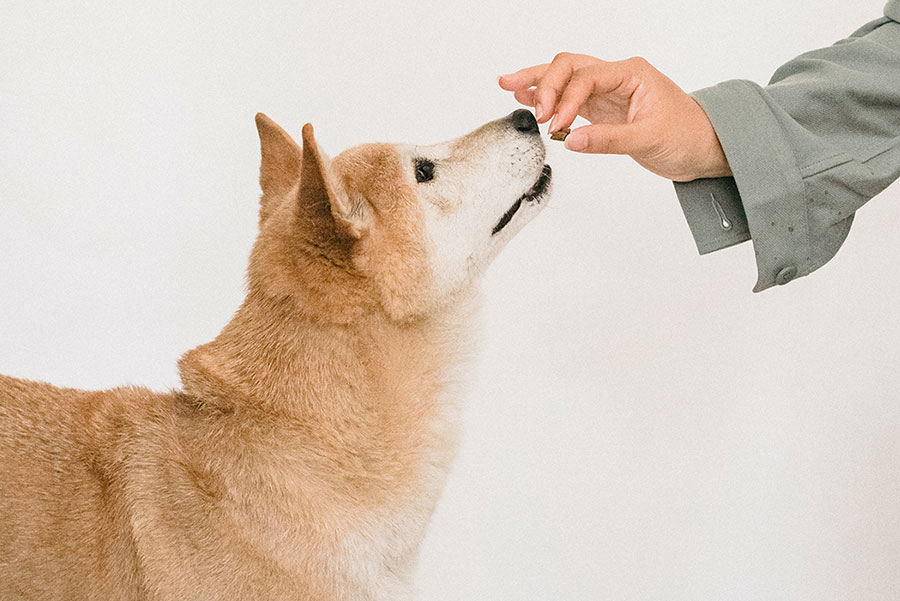
For thousands of years, humans have bred dogs to meet human needs and preferences. Whether it’s for hunting, herding, or guarding villages, humans have chosen specific dogs to breed together. These efforts have brought us to the variety of dog breeds we have today. Although we don’t necessarily use our Poodles for retrieving ducks or our Cocker spaniels for hunting, as our ancestors did, we still prize particular dog breeds. When you feed your dog, a breed-specific diet may just be secondary; the quality of the dog food is just as essential. Read on below to understand the different factors for providing your dog with a suitable diet.
Do Dog Breeds Have Unique Health Conditions?
Because there are physical traits, temperaments, and agility chosen for each breed, it’s not surprising that specific health conditions also manifest themselves in particular breeds. Below are a few examples of health conditions that are more prevalent in certain breeds.
- Chihuahuas frequently have dental issues due to their small jaws.
- Dalmatians often have problems with hearing.
- Golden retrievers are prone to have hip dysplasia and arthritis problems.
- Labradors can gain weight quickly and become obese.
- Pomeranians are more likely to have luxating patellas (knees that slip out of place) than other breeds.
- Dobermans are prone to genetic cardiomyopathy.
Does Dog Food Need to Be Breed-Specific?
Each breed has different genetic traits that can impact their health, and a breed-specific diet aims to prevent or manage those health issues. Breed-specific diets are formulated with extra nutrients to address the needs of particular breeds.
For example, a breed-specific dog food meant for Dachshunds — who are prone to back and spinal disorders from obesity — may contain low-fat ingredients, keeping a Dachshund’s weight within a healthy range. Though that reasoning may sound logical, health differences between breeds don’t necessarily translate into the need for a breed-specific diet. According to the Veterinary Medical Center at Tufts University, there’s more to keeping a dog healthy than a breed-specific diet.
Why a Breed-Specific Diet is Fine, but Not Necessary
Feeding a dog a breed-specific food may make owners complacent with their dog’s health, putting all their hopes on the breed-specific dog food rather than taking an individualized approach. It’s important to understand that there are no guarantees and that illnesses may occur even if you feed your dog a breed-specific diet.
Each dog is unique. An owner may find themselves with a Dachshund that could benefit from more calories rather than less. Every dog has a mix of internal and environmental factors that make up its health. In short, dogs are much more than their breed.
What Matters is the Quality of the Food
Currently, there are no guidelines for what should be in breed-specific dog food. The formulation for a German Shepherd’s dog food from one company may differ greatly from another company’s dog food for the same breed. All dog food — including breed-specific — must still meet the requirements dictated by the Association of American Feed Control Officials (AAFCO). When it comes to “breed-specific,” however, it’s up to each company to decide what ingredients to include to make the food work for a breed. More importantly, there are no current studies that indicate whether or not breed-specific dog food is effective at preventing breed-associated health conditions.

All-Breed Dog Food
While breed-specific dog food isn’t better than a universal “all-breed” type of dog food, it’s probably not harmful either. What’s vital is that owners pay attention to their dog’s health and follow their veterinarian’s directions. By changing dog food to align with your dog’s current needs, you can address the health issues head-on as they occur.
Human-Grade Dog Food: Quality Matters
To sum up, you do not need to feed your dog a breed-specific diet; what matters more than breed-specificity in dog food is the actual quality of the food. Dog food may meet the AAFCO nutritional guidelines, but it might not have quality ingredients. Feeding a dog quality food helps to ensure their longevity and promote good health, regardless of their breed. For example, human-grade dog food is made from higher-quality meats, vegetables, and grains than typical dog food. Human-grade dog food is cooked in the same type of kitchens meant for cooking human food and the same guidelines and requirements for human food.
Human-grade dog food is of a higher quality than regular pet food. Despite the general quality control for pet foods, the level still doesn’t come near the quality control used for human food. Human-grade dog food undergoes the same quality controls as human food, ensuring that dogs get the essential nutrients they need. Regardless of dog breed, what matters most is the quality of the food you feed to your pet.

